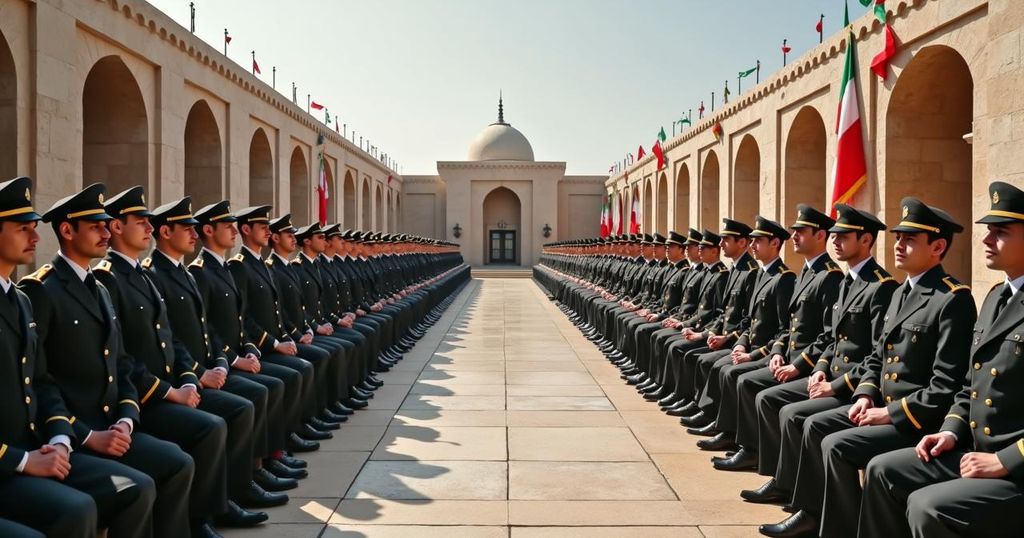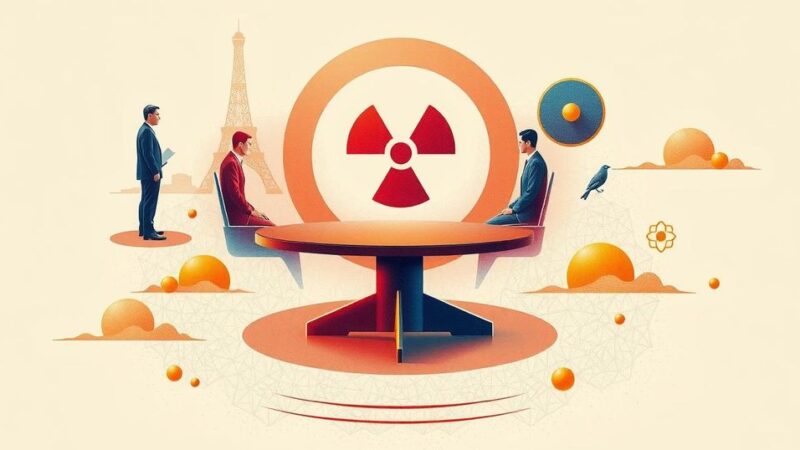Iran and Iraq will hold funerals for General Abbas Nilforushan, killed in an Israeli airstrike, alongside Hezbollah leader Hassan Nasrallah. Funeral ceremonies are set for Najaf, Karbala, Tehran, and Isfahan. Iran retaliated with missile strikes against Israel, which threatens further escalation amid tensions in the region.
Iran and Iraq are set to conduct simultaneous funerals for Revolutionary Guard General Abbas Nilforushan, who was reportedly killed in an Israeli airstrike alongside Hezbollah leader Hassan Nasrallah. The announcement was made by the Iranian Revolutionary Guards Corps (IRGC) news agency on Sunday. General Nilforushan served as a prominent figure within the Quds Force, responsible for Iranian foreign operations, and was killed on September 27 during an airstrike targeting southern Beirut, a stronghold of Hezbollah. According to the Sepah news agency, the funeral ceremonies are scheduled to commence in the Iraqi cities of Najaf and Karbala on Monday. Subsequently, his remains will be transported to Iran’s revered holy city of Mashhad. A further ceremony is anticipated to take place at Tehran’s Imam Hossein Square on Tuesday, culminating in his burial on Thursday in Isfahan, which is also his hometown. In a series of escalations following these events, Iran launched approximately 200 missiles at Israel on October 1, framing the attack as retaliation for the deaths of Nilforushan, Nasrallah, and Hamas political chief Ismail Haniyeh. Reports indicate that Israel confirmed its involvement in the Beirut airstrike, though it refrained from making any statements regarding Haniyeh’s death, which occurred during his visit to Tehran for the inauguration of the Islamic Republic’s new president. Furthermore, Israeli Defense Minister Yoav Gallant has warned of a forthcoming response to the Iranian missile attack, indicating that it would be “deadly, precise, and surprising.”
The tensions between Iran, Israel, and Hezbollah have been exacerbated by a series of military confrontations and retaliatory actions that have intensified in recent months. The assassination of key figures such as General Abbas Nilforushan and Hezbollah chief Hassan Nasrallah has provoked strong responses from Iran, including missile strikes against Israeli targets. This cycle of violence underscores the precarious nature of the geopolitical landscape in the region, where proxy conflicts and direct military engagements frequently occur. The funerals planned in both countries highlight not only the mourning of military leaders but also the ongoing conflict dynamics involving multiple state and non-state actors in the Middle East.
In summary, the coordinated funeral ceremonies for General Abbas Nilforushan in Iraq and Iran reflect the ongoing tensions in the region following the Israeli airstrike that killed key military figures. Iran’s retaliatory missile strike against Israel illustrates the escalating conflict, while further statements from Israeli officials suggest a commitment to respond decisively. As events unfold, the implications of these actions will likely influence the broader geopolitical landscape in the region.
Original Source: www.voanews.com






